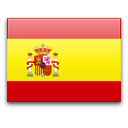Czech Republic will flatten the COVID-19 curve - they have a simple message
During the pandemic, headlines are centred on large countries such as the US, Italy and the UK. However, there is a small country in Central Europe defying the odds and are on tracking to "flatten the curve" of coronavirus infections, without the economic might and healthcare resources of countries such as Germany and South Korea. That country is the Czech Republic.
Whilst their mitigation strategies start off in a similar fashion to other European countries, they are going against the grain of almost all Western Countries in mandating the use of face-masks for everyone who needs to venture outside of their homes.
What is even more interesting is that they do not specify any minimum requirements for the face masks themselves. They recognise that face masks are in short supply, and the need for surgical and respiratory masks to be prioritised for health professionals. Therefore, residents can use any mask, even home made ones, when they go outside.
This goes against the guidelines of most Western countries which generally advise that face masks make little difference and there is no need to wear them in public.
So far, whether by coincidence or not, it seems to be working. If you look at the chart below (Czech Republic is the red line), their epidemic curve is heading towards a direction of flattening out, compared to countries with much steeper curves such as the UK and the US who are publicly skeptical of the effectiveness of face masks.

The daily number of new infections in the Czech Republic has not been growing, and appears to be stabilising.

Whereas in the UK the daily number of new infections appear to be increasing, as at 1st April 2020.

The UK and US' skepticism of face masks can be seen by the guidance from their governments, as summarised below.
UK's NHS states that "Face masks play a very important role in places such as hospitals, but there is very little evidence of widespread benefit for members of the public."
US's CDC "does not recommend that people who are well wear a face mask (including respirators) to protect themselves from respiratory diseases, including COVID-19."
UK's guidelines is particularly interesting as it does not refute the effectiveness of face masks in hospital settings, but questions their effectiveness when used by the general public. However this begs the question, if they are essential in hospitals, why are they suddenly not even helpful, in any other context?
As Dr. Kim from Korea University Guro Hospital, who has been central to South Korea's response to the COVID-19 outbreak keenly observed, guidelines such as these mask the fact that the issue is not one of effectiveness, but of allocation of scarce resources. Listen from minute 15:52 of the following interview.
Back to Czech Republic. They are creatively overcoming the scarce resource allocation issue by encouraging all citizens to mobilise in the effort of face mask production, even homemade ones, which at the moment appears to be helping them flatten their epidemic curve. To skeptics, they offer the following points:
- Even if face masks are not totally effective at protecting against the virus, every little helps and it can at the very least capture droplets from a person who unknowingly has the virus, hence slowing the spread
- If both parties are wearing face masks, it reduces the ability of the respiratory droplets to pass to each other. In normal conversations respiratory droplets can travel up to 2 metres.
- It prevents users from touching their nose and mouth, and if supplemented with frequent hand washing, can help to minimise the contracting of the virus through touch.
- If you can't buy one - no problems. Wrap something around to cover your mouth and nose, or make a mask at home. Some form of protection is better than none.
The Czech Republic do have a story to tell. I'll leave it in their words to share their experiences, and we hope their words get out to more people around the world.






